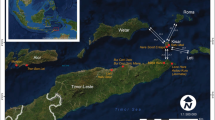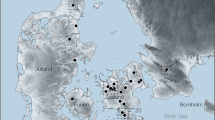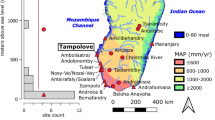Abstract
IN NATURE of August 10 (p. 488) there was a notice of an article by Mr. C. B. Moore (published in the Journal of the Academy of Natural Science of Philadelphia, 2nd Ser., part ii., vol. xvi.) on the explorations of aboriginal sites in the Tennessee River valley, which raises the interesting question of the provenance of certain cowries found there. These are pronounced by Dr. H. A. Pilsbry, the well-known American conchologist, to be examples of the money-cowrie, Cypraea moneta, of Eastern Seas, and they have never been recorded before from an aboriginal mound in the United States. Nor has the species ever been recorded living on any of the shores of the Americas. To account for their presence in the Tennessee mound, Dr. W. H. Dall, another of America's leading conchologists, has suggested that the cowries “may have come off one of Columbus's own ships”!
This is a preview of subscription content, access via your institution
Access options
Subscribe to this journal
Receive 51 print issues and online access
$199.00 per year
only $3.90 per issue
Buy this article
- Purchase on Springer Link
- Instant access to full article PDF
Prices may be subject to local taxes which are calculated during checkout
Similar content being viewed by others
Author information
Authors and Affiliations
Rights and permissions
About this article
Cite this article
JACKSON, J. Pre-Columbian Use of the Money-Cowrie in America. Nature 98, 48–49 (1916). https://doi.org/10.1038/098048d0
Issue Date:
DOI: https://doi.org/10.1038/098048d0
Comments
By submitting a comment you agree to abide by our Terms and Community Guidelines. If you find something abusive or that does not comply with our terms or guidelines please flag it as inappropriate.



